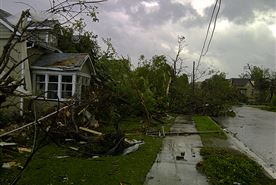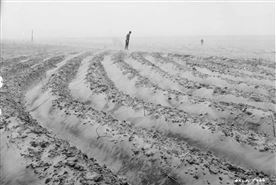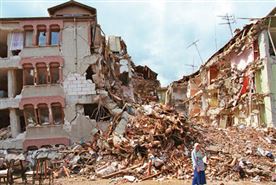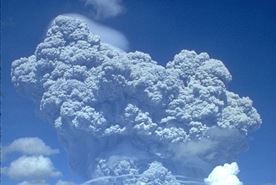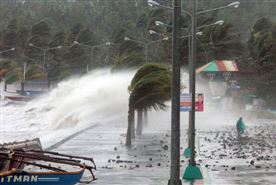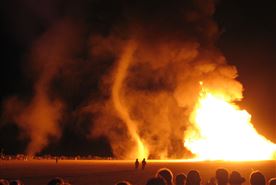Natural Disasters (advanced)
Adjective
causing sudden and widespread disaster
catastrophic
Soldiers and emergency workers scour the wreckage for survivors after catastrophic storms ripped through the U.S. south east.
Soldiers and emergency workers scour the wreckage for survivors after catastrophic storms ripped through the U.S. south east.
Adjective
causing sudden and widespread disaster
Soldiers and emergency workers scour the wreckage for survivors after catastrophic storms ripped through the U.S. south east.
Noun
a long period of abnormally low rainfall
The Dust Bowl, or the Dirty Thirties, was a period of grievous dust storms caused by severe drought and wind erosion in the American prairie lands. "Black blizzards" often reduced visibility to a few feet (a meter) or less.
Noun
destructive fire, usually an extensive one
These violent infernos are common in the western United States, where heat, drought, and frequent thunderstorms provide perfect wildfire conditions.
Verb
fill or cover completely, usually with water
A magnitude 8.9 earthquake struck Japan, tsunami waves inundating cities and towns along 1,300 miles (2,092km) of coastline.
Verb
eject or send out in large quantities
The eruption of Mt. Pinatubo in the Philippines in 1991 spewed almost 20 million tons of sulfur dioxide into the atmosphere, causing worldwide temperatures to drop half a degree on average.
Noun
sudden powerful forward or upward movement, esp. by a crowd or natural force such as waves
A tsunami is a series of ocean waves that send surges of water, sometimes reaching heights of over 100 feet (30.5 m), onto land. These walls of water often cause widespread destruction.
Adjective
flowing or falling fast and in great quantities
The 2010 season of torrential rains has triggered deadly landslides --a three-story building in northern Guatemala City fell into a massive sinkhole 330 feet deep.
Noun
a tropical cyclone occurring in the western Pacific or Indian oceans
Philippines Typhoon Haiyan slammed into six central islands Friday, decimating buildings and homes. One of the most powerful typhoons ever recorded, Haiyan (Yolanda in the Philippines) has caused at least 10,000 fatalities.
